About Us
CanChip revolutionizes cancer research with its cutting-edge tumor-on-a-chip technology, overcoming limitations in traditional models. By authentically replicating the tumor microenvironment, CanChip accelerates drug screening and cancer treatment development. Their expertise in designing tracheal tumor chips not only enhances efficiency and accuracy but also facilitates collaborations with universities, paving the way for personalized treatment strategies and marking a transformative chapter in the battle against cancer.
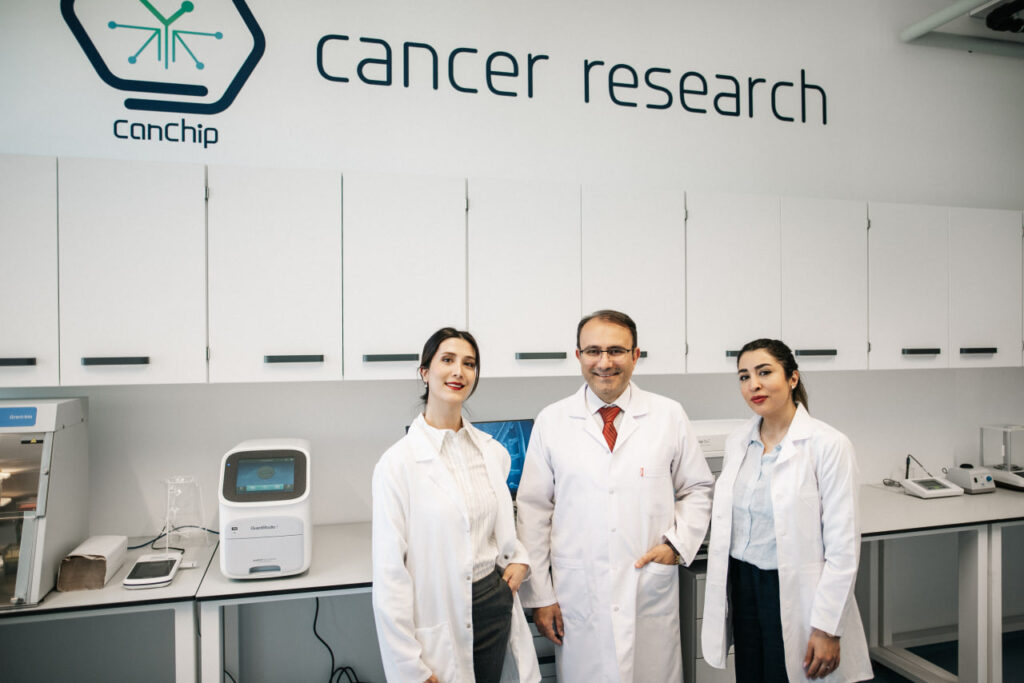
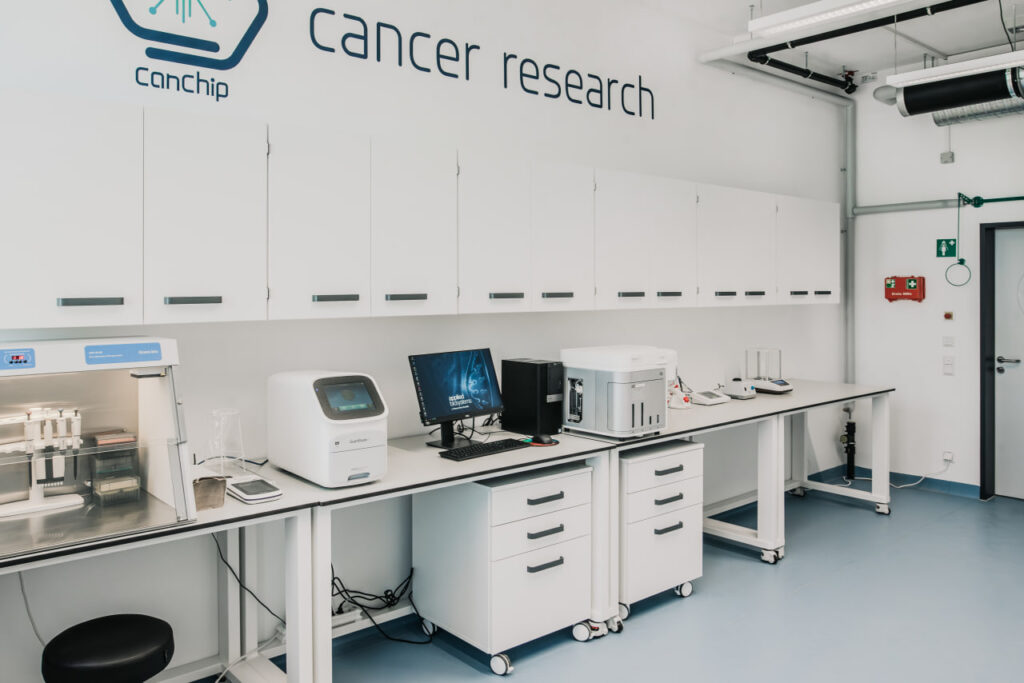
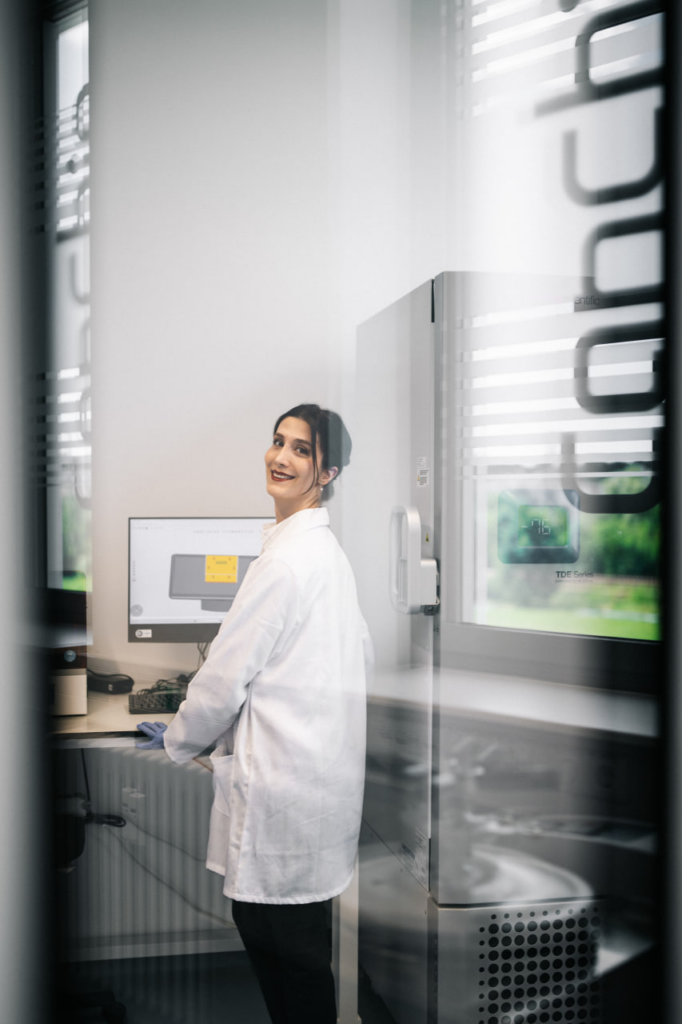
Our Vision
To revolutionize cancer research by advancing the field through cutting-edge tumor-on-a-chip technology, overcoming limitations in traditional models, and striving to create an efficient in vitro tumor microenvironment for enhanced drug discovery and development of anti-cancer therapies.
Who we are?
A short introduction to our team members and why their background should inspire potential clients’ confidence.

Ghazaleh Madani
CEO and Founder
She completed her bachelor’s degree at Isfahan University of Medical Science, Iran. Then worked in the laboratory of the hospital for one year. In 2020, she started her master´s degree at Potsdam University in Biochemistry and Molecular Biology. During this time, she worked on her laboratory skills and took part in many specialized congresses and webinars to stay up-to-date and connected to the scientific community. Since May 2022 she has been working on her master’s thesis in Preclinic GmbH working on a research and development project with an immunization and antibody production base. She finished her master’s degree in July 2023.

Dr. Omid Nejati
Scientific Director and Co-Founder
He completed his graduate and undergraduate studies (BSc) at Mashhad University of Medical Sciences and Shahrood University, Department of Laboratory Medical Sciences in Iran. He completed his master’s degree at Azad University in molecular biology and genetics (MSc). In 2017, he became a Ph.D. candidate in developmental biology at Azad University. He is currently a PhD candidate in stem cell and tissue engineering at Istinye University, Istanbul, Turkey. Also, he has been working in Ayça BAL Öztürk’s laboratory since November 2021. His last article under the title “Biosensor integrated brain-on-a-chip platforms: Progress and prospects in clinical translation” was published in the journal Biosensors and Bioelectronics in 2023. His Current research areas are stem cells, biomaterials, nanoparticles, tissue engineering, organ on chip (OoC), Tumor on chip (CoC), regenerative medicine, cancer stem cells, wound healing, and 3D bioprinting.
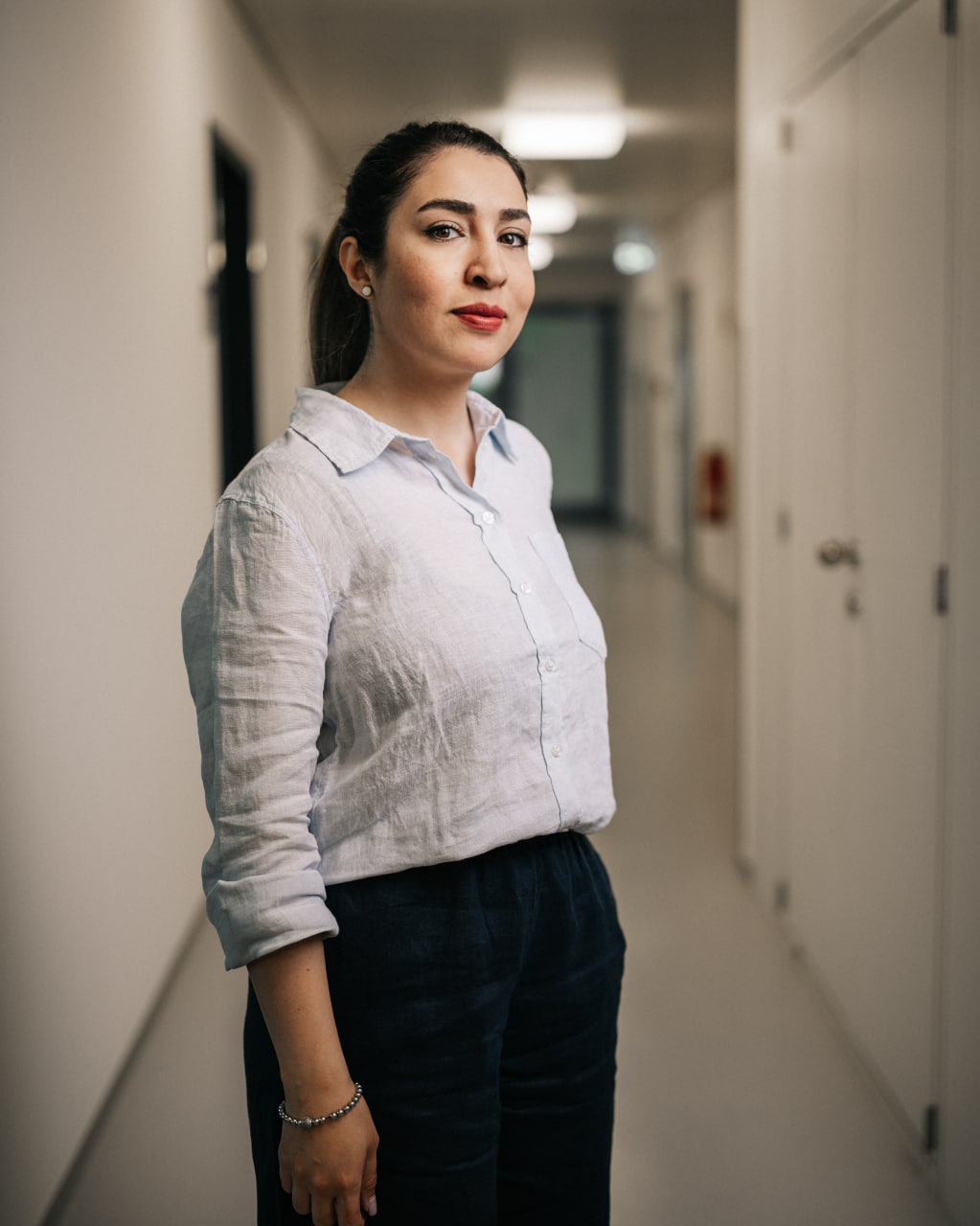
Zhina Mazhari
Laboratory expert
She completed her Master of Science in Molecular Biology and Genetics in Iran. In 2017, she began her professional journey as a Quality Assurance expert at LivoGen Pharmed Co. in Tehran, Iran. During her tenure at LivoGen Pharmed, she developed her skills in quality control and management, becoming an integral part of the company’s success.
In 2018, Zhina advanced to the role of Molecular Laboratory Manager, where she developed expertise in analyzing samples across various domains. That same year, she earned her Good Laboratory Practice (GLP) certification and actively participated in numerous symposiums to stay abreast of the latest advancements in her field.
In May 2024, She joined CanChip as a Laboratory Expert, where she continues to apply her extensive knowledge and skills in molecular biology and genetics. Her dedication to continuous learning and professional growth ensures she remains at the forefront of scientific research and laboratory management.
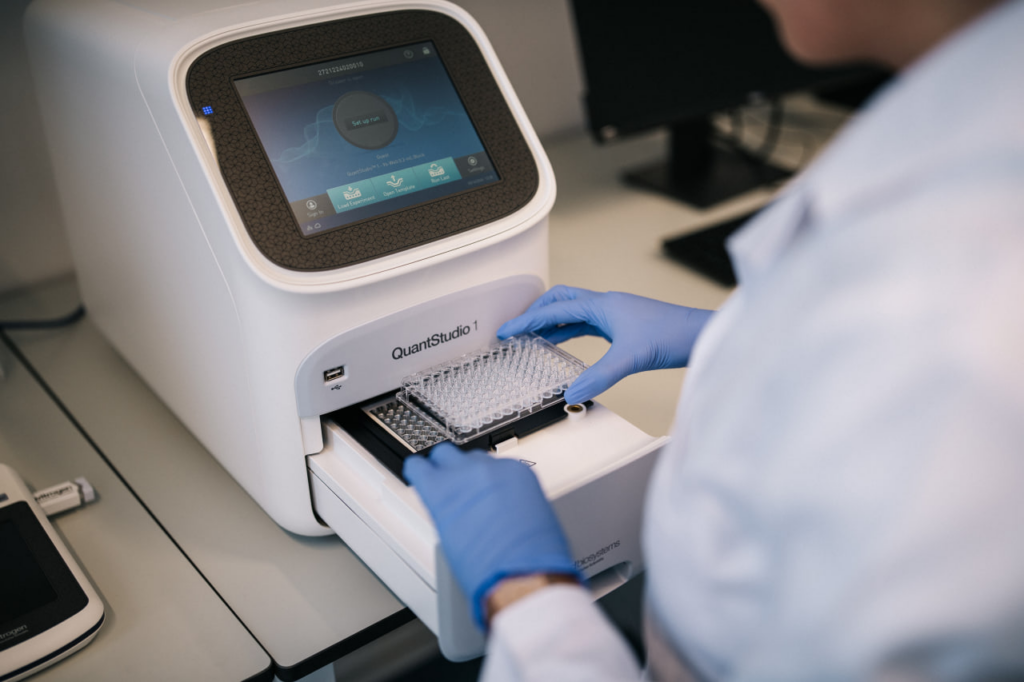
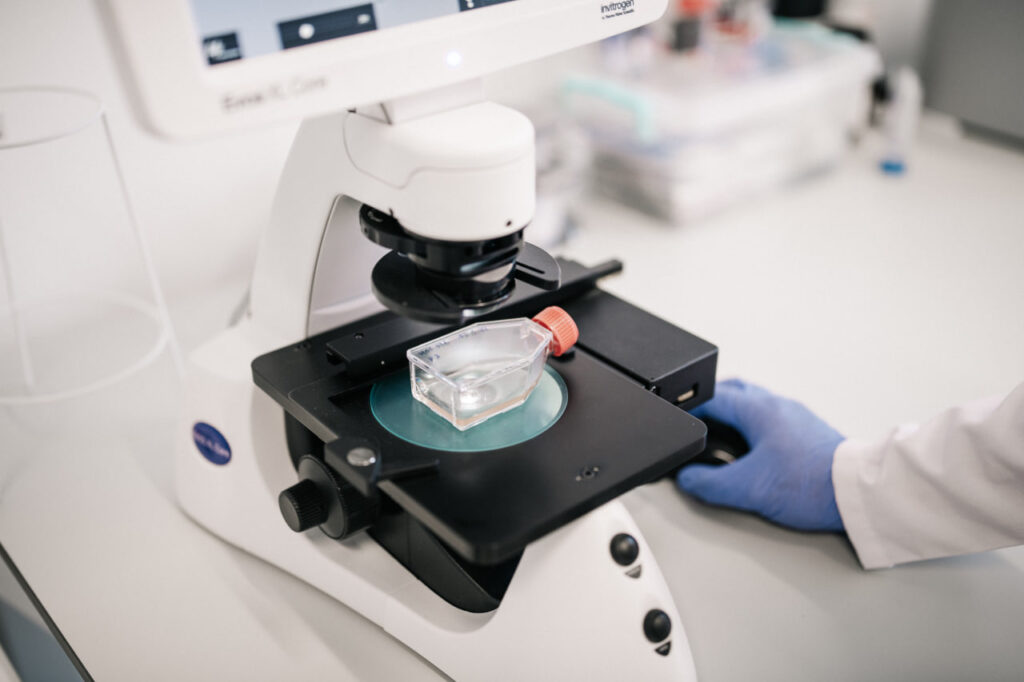
What We Do?
The development of tumor-on-chip technology is driven by a need to improve our understanding of cancer and develop more effective cancer treatments. Traditional methods for studying cancer involve growing cancer cells in 2D cell cultures or animal models, but these methods have several limitations. In 2D cell cultures, cancer cells often behave differently than they do in the complex 3D environment of tumors in the body. In animal models, the tumors may not accurately mimic human tumors, and the experiments can be time-consuming, expensive, and ethically challenging. Tumor-on-chip technology offers a promising alternative by allowing researchers to create microscale devices that replicate the 3D environment of tumors in the body, complete with blood vessels and other components of the tumor microenvironment. These chips can be used to study how tumors grow and spread, how they respond to different treatments, and how the surrounding tissues and immune system interact with the tumor. By using tumor-on-chip technology, researchers can gain a better understanding of cancer biology and develop more effective cancer treatments. Tumor-on-chip technology also has the potential to reduce the reliance on animal models and improve the efficiency and cost-effectiveness of cancer research.
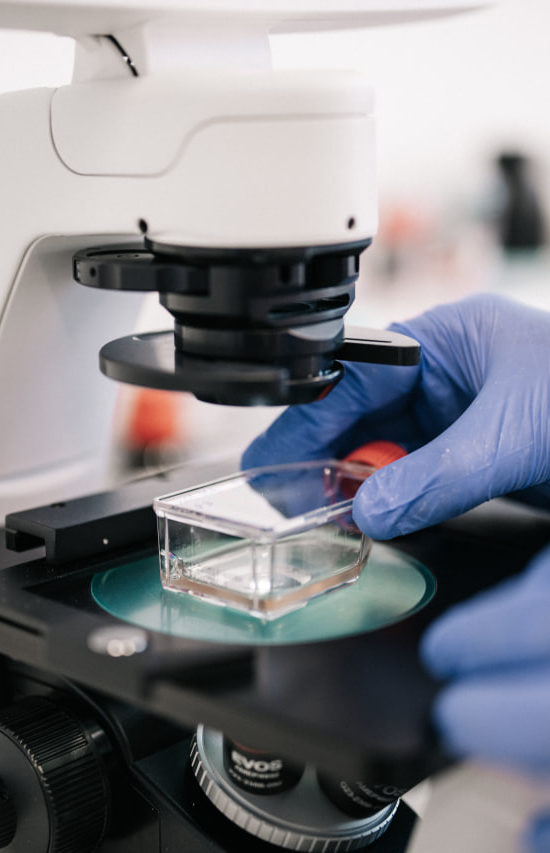
Our projects
CanChip: Elevating Biomedical Research in Cancer Biology
Our company With the benefit of experiences, the use of modern techniques, and modern equipment in the field of biological and medical research, is ready to cooperate in the implementation of post-doc course projects, and theses of doctoral and master’s students. Also, this center can participate with professors and students in presenting hot and up-to-date research topics in the field of personalized medicine in cancer biology and applications of Toc or CoC in these topics.


